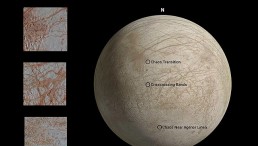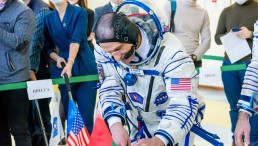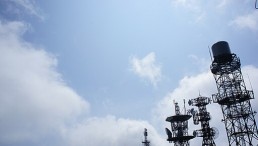environment
Extreme Weather Risk Doubles Due To Global Warming
Doomsday Clock Moves Even Closer to Midnight
Reprogramming the World: Putting a Kill Switch in GMOs
New Island Created By Volcano in Tonga
Dust on the Ocean Floor Reveals Ancient Supernova
The Pope's Forward-thinking Climate Stance Faces Conservative Opposition
Can You Really Smell When It’s About to Rain? Scientists Now Know Why
Don’t Believe In Climate Change? NOAA Says 2014 Brought Hottest Summer To Date
Alarming New Study Reveals Rising Sea Levels is Happening Faster Than Researchers Thought
Pushed to the Brink—Humans Put Earth in 'The Danger Zone'
Human Activity May Lead to a Bleaker Life Under the Sea
How Zebra Stripes and Rising Sea Levels Have More In Common Than You Thought
Sea Turtles Reveal A Sixth Sense—Finding Their Way Home & Sensing The Seasons
Polar Bears May Be Solving Their Own Problems—But Not For Long
Most Popular

Should You Shower Everyday? Here's What Happens If You Shower Too Much, Too Little

The Awesome Power of AI, and the Urgent Need for Proper Oversight

La Ferrassie Man: What Makes Him One of World’s Most Famous Neanderthals?

Prehistoric Global Warming Caused by Massive Volcanic Eruption Turned Dinosaurs Into Warm-Blooded Animals





